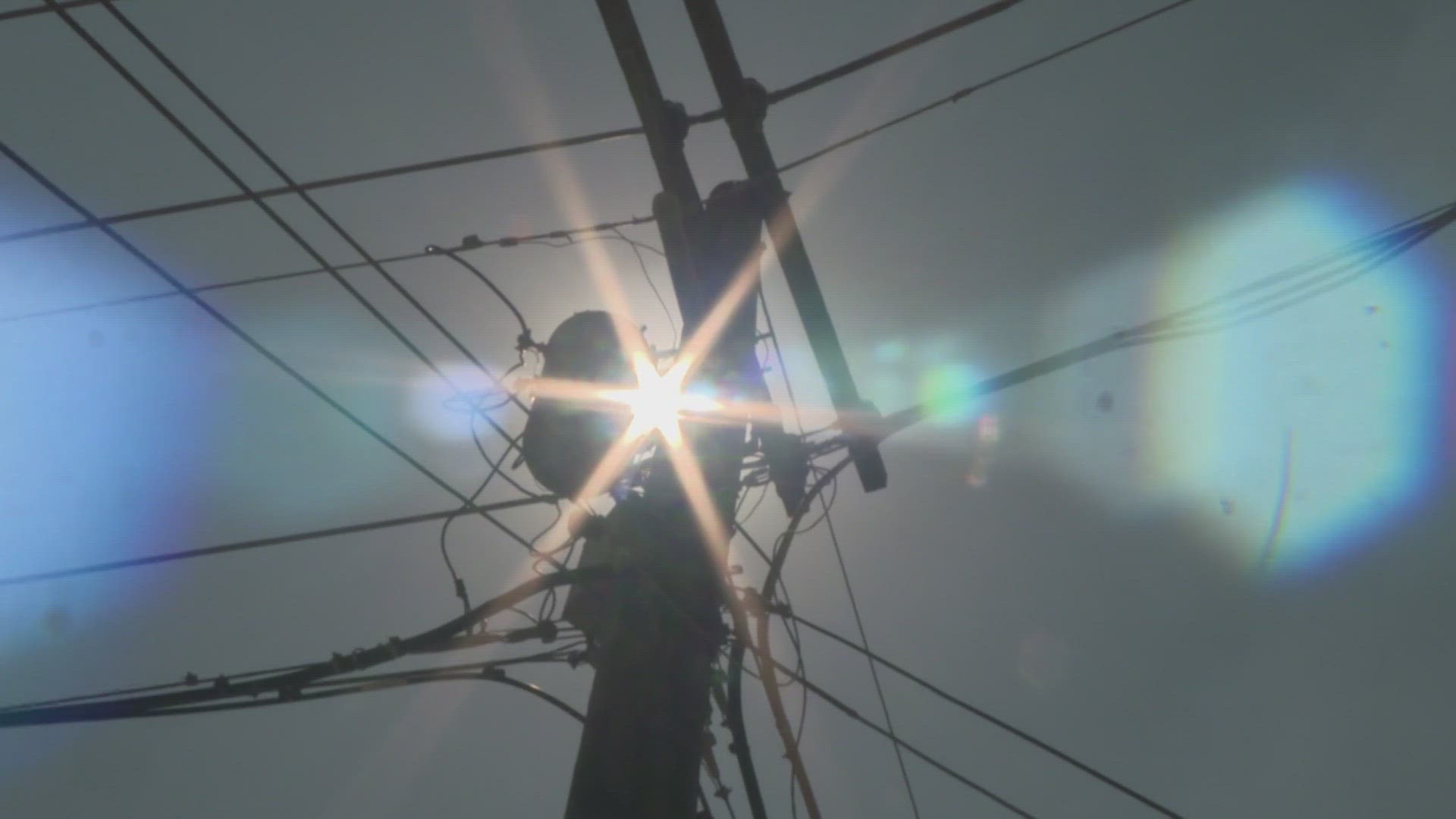DALLAS — ERCOT asked Texans to voluntarily conserve energy on Thursday as the state baked under near-record temperatures again. But, despite recent years when conservation requests led to rolling outages and then led to partial grid collapse, energy sector experts say they are not concerned today.
"We fully understand people's anxiety about electricity supplies and having power supply is heightened from what we've been through the last three or four years," said Jesson Bradshaw, CEO of Energy Ogre, referencing the Texas grid collapse during the winter of 2021.
Bradshaw noted the "pinch point" that you can watch in real time on the ERCOT website -- the point where supply seems to narrowly exceed demand. Common in the evening hours between 5 p.m. and 8 p.m., and at times today with an operating reserve at times near just 5,000 MW, the pinch point happens as solar generation wanes and wind generation is near its lowest.
"That's the pinch point that we've been seeing a lot more this summer," Bradshaw said.
Although solar and wind generation combined make up only about 19% of total power generation in Texas right now, Bradshaw says weather conditions are not creating as much wind generation opportunities. Natural Gas makes up the lion's share of power generation in Texas, at roughly 60% of total MW produced.
"But, I think that ERCOT still has quite a few tools in their tool chest so I don't think that we need to be overly concerned," Bradshaw said.
Tools like raising wholesale prices to encourage more generation to come online. Or, asking large volume customers to cut back. Thursday's voluntary conservation notice requested that all government agencies "implement all programs to reduce energy use at their facilities."
In its notice issued today, ERCOT said it "is using additional tools to manage the grid reliably, including using reserve power, calling upon reductions by large electric customers that have volunteered to lower their energy use, and bringing more generation online sooner."
"Voluntary call for conservation is just asking people to reduce power during the hours in the afternoon to make sure there is plenty to go around," said Joshua Rhodes, Ph.D., with the Webber Energy Group/Energy Institute at UT Austin. "But it doesn't necessarily mean that power is going out."
And, in a note of unintended irony, Rhodes revealed that he was an "involuntary" participant today. The AC units at his own home failed and he was patiently waiting as crews worked to replace them.
But the Texas grid, he said he's not concerned about that.
"Yeah, I'm not really concerned with the grid right now," Rhodes said. "Now, we could have a lot of things go wrong, and my mood might change but at this time I think the grid is operating as it's designed to."

